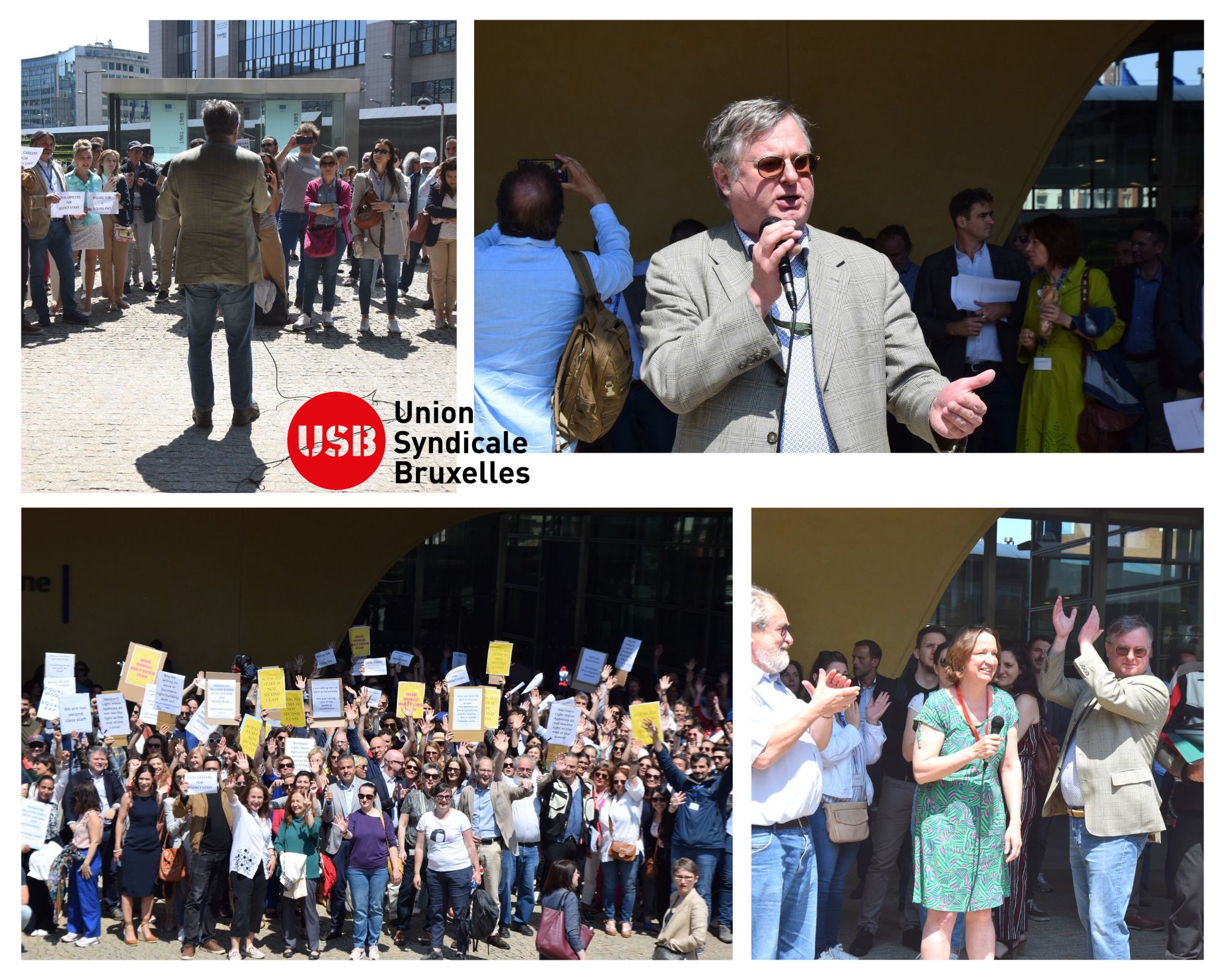
MEETING WITH TRADE UNIONS ON THE SITUATION IN PMO
Staff organisations met with DG HR and PMO Director and Heads of Unit, to discuss the difficult situation that has been developing for months.
A recent PMO staff survey highlighted an excessive workload, a subpar working atmosphere and inappropriate management practices. This situation became worse with the reorganisation of 2022, which resulted in numerous complaints from colleagues, reporting permanent stress, increase in sick leave and burn-out, working at weekends, resignations, etc.
During the meeting called by the unions, the Director of PMO said he did not understand the problem since "he does not hear anything from staff" (ipse dixit). It is obvious that there is either a huge communication problem in PMO or he is not living on the same planet as his staff. PMO staff (75% of which are contract agents) do not speak out for obvious reasons, mainly due to their almost non-existent mobility and other limitations in their careers. During the meeting PMO head of unit even went so far as to say that those who are not happy could leave. But go where?
As regards the reorganisation, we found that it lacked preparation, with a poor assessment of the evolution of the workload in some units. The reduced staff in certain sectors made it impossible to achieve objectives without affecting the health and well-being of staff. However, the Director argued that all the decisions taken made sense and were implemented in due time, except that for Luxembourg, a situation which he is catching up on.
Reorganisation is a major change in the life of any administration, let alone in an international organisation, and should be supported adequately.
Union Syndicale early in the negotiations, requested the setup of a “chamber d’écoute” independent of the PMO to assist colleagues. The aim being to avoid forced postings and to listen to concerns. However, at this point even a listening room is insufficient.
We concluded that there is a problem at management level that the Commission seriously needs to address. As a defense the Director referred to budgetary constraints defined by a political agenda of "doing more with less". However, did the Director have no other choice? A good manager should know how to manage staff, make an adequate analysis of the workload to obtain realistic objectives, while taking into account the staff numbers. He/she should also be able to establish negative priorities, where necessary.
Union Syndicale has requested an independent "external" analysis of the situation for each PMO unit, using available models and indicators to assess workload, working conditions, relations in the service, etc.). It also provided DG HR with the tools developed by the Belgian Ministry of Employment's for analysing the psychological burden of staff (see enclosed).
Union Syndicale called for the intervention of the PMO Board, in particular DG HR, to address the Office's staffing problems more seriously. To preserve colleagues’ well-being the issue should not solely be left in the hands of the PMO Director. We were disappointed that neither the SG nor DG BUDG present at the meeting, since they are members of the Board.
The representative of Cabinet Hahn did not comment on the staff working conditions, although she acknowledged the significant efforts made by PMO in recent years. However, she invited staff to contact the Cabinet directly in case of problems.
At the end, DG HR committed to sending Union Syndicale a list of proposals for instruments and measures to remedy the current situation.
We are waiting for this information and will keep you posted.







